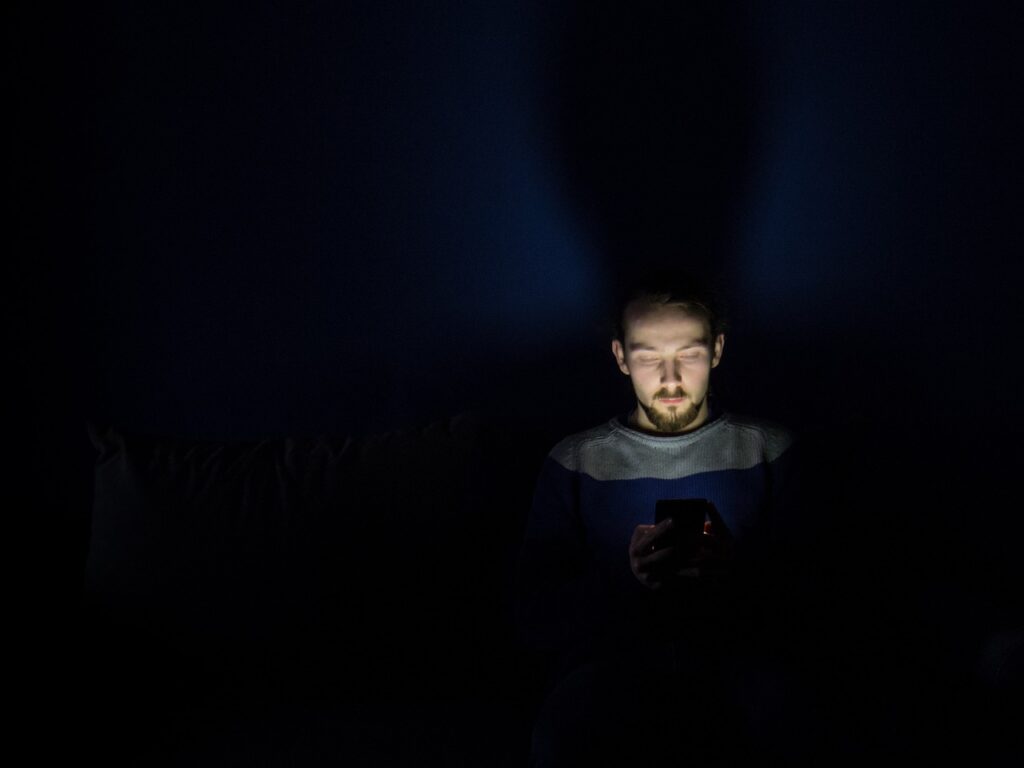In today’s fast-paced society, we often sacrifice sleep in favour of work, social obligations, and other activities (I get you – I wasn’t any different prior to studying the science of sleep). However, the importance of sleep cannot be overstated. It simply cannot. Adequate sleep is essential for optimal physical, mental, and emotional health and functionality. In this article, I’m going to explore the science of sleep and its critical role in functional health with you.
The Science of Sleep
Sleep is a complex physiological process involving multiple stages and processes. During your sleep, the body repairs and regenerates tissues, and the brain processes and consolidates memories and learning. Sleep is also essential for regulating your mood and emotions, and for supporting optimal immune function.
There are two main types of sleep: rapid eye movement (REM) sleep and non-rapid eye movement (NREM) sleep. During NREM sleep, the body is in a state of deep relaxation, and brain activity slows down. REM sleep, on the other hand, is characterized by rapid eye movements and increased brain activity, particularly in the areas of memory and learning.
And regardless of what today’s performance guru might be professing, science continues to show us that the amount of sleep required varies by age and individual needs, but most adults still need between 7-9 hours of sleep per night to function optimally.
“You can certainly get less sleep – and many people do, but you need to know that when you do, you’re opening yourself up to the potential for a wide range of health problems.”
– Joseph G Trevors, n.d., CFNC
The Consequences of Sleep Deprivation
Sleep deprivation can have a profound impact on physical, mental, and emotional health. Chronic sleep deprivation has been linked to an increased risk of obesity, type 2 diabetes, cardiovascular disease, and other chronic health conditions. Lack of sleep can also impair immune function, making it more difficult for the body to fight off infections and illnesses.
In addition to its physical effects, sleep deprivation can also affect cognitive function, mood, and emotional regulation. Studies have shown that sleep-deprived individuals are more likely to experience cognitive decline, memory impairment, and decreased attention span. Lack of sleep can also contribute to mood disorders such as anxiety and depression.
The Role of Dopamine in Sleep
Dopamine is a neurotransmitter that plays a critical role in regulating sleep and wakefulness. Dopamine is involved in the regulation of the sleep-wake cycle and is essential for maintaining wakefulness during the day. Dopamine production is highest during the day and decreases at night, promoting sleepiness.
Studies have shown that dopamine levels are decreased in individuals with sleep disorders such as insomnia and restless leg syndrome. Additionally, dopamine agonists, medications that increase dopamine activity, have been shown to improve symptoms of sleep disorders.
The Pineal Gland and Sleep
The pineal gland is a small endocrine gland located in the brain that plays a critical role in regulating the sleep-wake cycle. The pineal gland produces melatonin, a hormone that promotes sleepiness and helps to regulate the sleep-wake cycle.

Melatonin production is highest at night and decreases during the day, promoting wakefulness. The production of melatonin is regulated by light exposure, with exposure to light inhibiting melatonin production and darkness promoting it.
Studies have shown that melatonin supplementation can improve sleep quality and duration in individuals with sleep disorders such as insomnia. Additionally, exposure to bright light in the morning can help to regulate the sleep-wake cycle and promote daytime performance.
Functional Health and Sleep
Functional health is a holistic approach to healthcare that emphasizes the interconnectedness of all body systems and the importance of optimizing overall health and wellness. In the context of functional health, sleep is a critical component of optimal health and functionality.
Sleep plays a central role in regulating many of the body’s physiological processes, including immune function, hormone production, and metabolic function. Inadequate sleep can disrupt these processes and contribute to chronic health conditions.
In addition to its physiological effects, sleep also plays a crucial role in emotional and mental health. Lack of sleep can lead to increased stress, anxiety, and depression, which can further exacerbate physical health problems.
Strategies for Improving Sleep
Fortunately, there are many strategies for improving your sleep and promoting functional health. Some of the strategies I’ve chosen to include are:

- Prioritizing sleep: Make sleep a priority by setting aside enough time for adequate sleep each night.
- Establishing a bedtime routine: Create a relaxing bedtime routine that signals to your body that it’s time to sleep. This could include taking a warm bath, reading a book, or practicing relaxation techniques such as meditation or deep breathing.
- Avoiding caffeine and alcohol: Avoid consuming caffeine and alcohol in the evening (for some of you, this would be early afternoon), as they can interfere with sleep.
- Creating a comfortable sleep environment: Make sure your sleep environment is comfortable, cool, and quiet. Invest in a comfortable mattress and pillows and use blackout curtains or eye masks to block out light.
- Limiting screen time: Avoid using electronic devices in the evening, as the blue light they emit can interfere with sleep. At the very least (if this otherwise sounds ridiculously impossible to you), limit screen-time to 1-2hrs before bed (and preferably not IN bed).
- Engaging in regular exercise or activity: Regular exercise and movement can improve sleep quality and duration.
- Natural Supplementation: Magnesium has been shown to help you relax and dip into healthy sleep patterns. And some will also supplement with Melatonin (so the ‘2 M’s’, essentially). Certainly something to consider, but I always encourage you to check against your healthcare provider and current medications for potential reactions, etc. (especially if breastfeeding, struggling with an auto-immune disorder, depression, and more).
Let Me Wrap This Up For You
Sleep is a critical component of functional health and optimal functionality. Adequate sleep supports physical, mental, and emotional health and helps to improve cognitive performance, regulate mood, and strengthen the immune system. By prioritizing sleep and implementing the strategies outlined in this article, you can optimize your sleep habits and improve your overall health and functionality. Remember, getting a good night’s sleep isn’t a luxury – it’s a necessity.
And with that in mind, if you’re struggling with sleep and are looking for a comprehensive solution to optimize your health and functionality, then I highly recommend checking out this 16 Week Genomic Master Process. This program is designed to help us help you by first identifying the science behind the root causes of your health and sleep issues and provide personalized strategies to help you improve your overall health. Don’t let lack of sleep hold you back from living your best life. Take action today and discover how we can help you achieve optimal health and functionality.
- Krueger JM, Frank MG, Wisor JP, Roy S. Sleep function: toward elucidating an enigma. Sleep Med Rev. 2016 Feb;28:46-54. doi: 10.1016/j.smrv.2015.07.003. Epub 2015 Jul 29. PMID: 26411863.
- Irwin MR. Why Sleep Is Important for Health: A Psychoneuroimmunology Perspective. Annu Rev Psychol. 2015;66:143-72. doi: 10.1146/annurev-psych-010213-115205. PMID: 25559102.
- Duffy JF, Zeitzer JM, Rimmer DW, Klerman EB, Dijk DJ, Czeisler CA. Peak of circadian melatonin rhythm occurs later within the sleep of older subjects. Am J Physiol. 2002 May;282(5):R1315-20. doi: 10.1152/ajpregu.00483.2001. PMID: 11959684.
- Sateia MJ. International Classification of Sleep Disorders-Third Edition. Chest. 2014 Jul;146(1):138-41. doi: 10.1378/chest.14-0112. PMID: 25010879.
- Miller MA, Wright H, Ji C, Cappuccio FP. Cross-sectional study of sleep quantity and quality and amnestic and non-amnestic cognitive function in an ageing population: the English Longitudinal Study of Ageing (ELSA). PLoS One. 2014 Sep 9;9(9):e107438. doi: 10.1371/journal.pone.0107438. PMID: 25203196; PMCID: PMC4153633.
- Brown FC, Buboltz WC Jr, Soper B. Relationship of sleep hygiene awareness, sleep hygiene practices, and sleep quality in university students. Behav Med. 2002 Summer;28(2):33-8. doi: 10.1080/08964280209596396. PMID: 12146739.
- St-Onge MP. The Role of Sleep Duration in the Regulation of Energy Balance: Effects on Energy Intakes and Expenditure. J Clin Sleep Med. 2013 Dec 15;9(12):1201-9. doi: 10.5664/jcsm.3272. PMID: 24340217; PMCID: PMC3835327.
